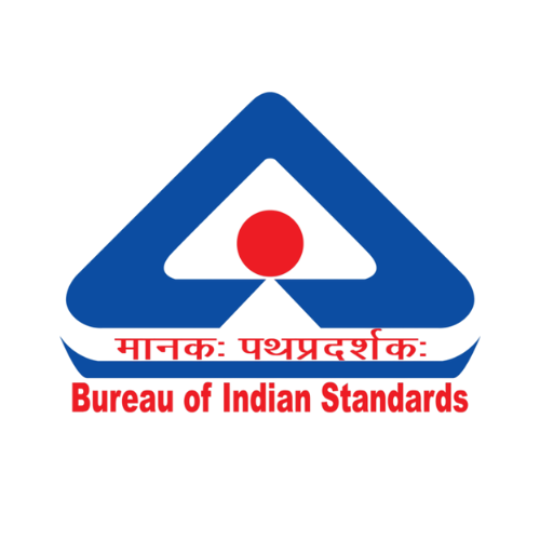India Reopens the Door for Chinese Imports — BIS Certification Now Mandatory for Chinese Products
Date: November 12, 2025 | Author: SS Global Services
Introduction
After nearly five years of restricted trade, the Government of India has decided to resume and fast-track approvals for Chinese-manufactured goods to enter Indian markets.
This decision, announced in November 2025, marks a significant shift in India’s trade policy that had tightened following border tensions in 2020. The move is aimed at restoring disrupted supply chains, meeting growing domestic demand, and ensuring quality and compliance through BIS certification.
While India never imposed a complete ban on Chinese imports, the delays in granting BIS (Bureau of Indian Standards) approvals to Chinese factories had effectively paused new import flows for several categories. Now, with renewed approvals, Chinese products can re-enter India—but only after obtaining mandatory BIS certification.
Why India Resumed Chinese Imports After Five Years
The Indian government’s decision to resume imports from China stems from a combination of economic, industrial, and market-driven factors.
- 1. Supply Chain Recovery:
Post-pandemic and geopolitical disruptions caused a shortage of essential materials like electronics components, steel, footwear, and household appliances. Resuming Chinese imports ensures industries have the inputs they need to maintain production levels.
- 2. Rising Domestic Demand:
With strong growth in the electronics, automotive, and consumer goods sectors—especially during festive seasons—India needed to clear the backlog of pending import approvals.
- 3. Balanced Trade Approach:
India’s current stance combines trade flexibility with quality regulation. While reopening trade channels, the government ensures all imported products meet Indian safety and performance standards through BIS certification.
- 4. Improved Bilateral Cooperation:
The decision also signals gradual normalization of India–China trade relations, allowing smoother licensing, inspection, and certification procedures.

What is BIS Certification?
The Bureau of Indian Standards (BIS) is the national body responsible for maintaining India’s product quality and safety standards.
BIS Certification is a mandatory regulatory requirement that ensures all products—domestic or imported—meet India’s prescribed Indian Standards (IS codes) before being sold in the market.
It helps protect consumers from unsafe or substandard goods while promoting fair trade and quality assurance across industries.
This certification applies to a wide range of industries such as electronics, appliances, steel, and automotive — ensuring that every regulated product sold in India meets consistent quality standards.
Note:- Foreign manufacturers, including those in China, must obtain a BIS Licence under the Foreign Manufacturers Certification Scheme (FMCS) to sell or export their products in India.

Different Types of BIS Certification
BIS operates multiple certification schemes depending on the product type and its origin:
- ISI Mark Certification:
For Indian manufacturers, the ISI Mark ensures that products meet mandatory Indian Standards (IS) for safety, quality, and reliability. It allows domestic manufacturers to sell certified goods in the Indian market under BIS regulations.
- Foreign Manufacturers Certification Scheme (FMCS):
Under the FMCS, foreign producers, including those from China, can obtain BIS approval after factory inspections and product testing. It enables them to legally export and sell certified products in India with the ISI mark.
- Compulsory Registration Scheme (BIS CRS):
The BIS CRS applies to electronics and IT products, requiring manufacturers to register their items after testing in BIS-recognized labs. It ensures product safety, quality, and performance before import or sale in India.
- BIS Scheme-X Certification:
BIS Scheme-X covers products made in India or abroad that fall under special regulatory or customized approval conditions. It ensures compliance for unique or specialized products that don’t fit under standard certification schemes.
BIS Certification for Chinese Products Explained
The BIS Certification is India’s national quality and safety compliance framework governed by the Bureau of Indian Standards. It ensures that all regulated products—whether made domestically or imported—meet Indian Quality Control Orders (QCOs).
For Chinese manufacturers, obtaining BIS certification is mandatory before exporting regulated products to India. This certification confirms that the product complies with the relevant Indian Standard (IS) and can safely be sold in Indian markets.
Key product categories that require BIS Certification:
- Electronics and IT equipment (under the CRS scheme)
- Household and consumer appliances
- Steel, footwear, and construction materials
- Automotive parts and telecommunication devices
Note:- Without BIS approval, no shipment from China or any foreign country can be legally sold or distributed in India.
Step-by-Step: How Chinese Manufacturers Get BIS Certified
The process of obtaining BIS certification for Chinese products follows a structured sequence designed to verify compliance with Indian standards:
- 1. Product Identification:
Determine whether your product falls under any BIS-regulated category or Quality Control Order (QCO).
- 2. Application & Documentation:
Submit an online application through the BIS portal with all technical documentation, test reports, and manufacturing details.
- 3. Sample Testing:
Send product samples to a BIS-recognized laboratory in India for testing and validation against applicable standards.
- 4. Factory Audit:
BIS officials conduct an on-site inspection of the foreign manufacturing facility to assess production processes, quality control systems, and testing mechanisms.
- 5. Licence Issuance:
After successful testing and inspection, BIS grants the Foreign Manufacturer Certification Scheme (FMCS) licence or CRS registration, allowing the manufacturer to export certified products to India.
- 6. Surveillance and Renewal:
BIS may conduct periodic audits or request sample retesting to ensure continued compliance with Indian standards.
Note: Any manufacturer exporting regulated products to India without BIS certification risks rejection at customs, financial penalties, and loss of market access.
Get Service NowWhat Has Changed in 2025 for BIS Approvals
In 2025, the Government of India and the Bureau of Indian Standards initiated several measures to simplify and expedite approvals for foreign manufacturers, particularly those in China.
- 1. Fast-Track Approval Process: BIS is now clearing pending certification applications that had been delayed since 2020. The process is faster, with a focus on priority sectors such as electronics, steel, and consumer goods.
- 2. Case-by-Case Review: Each foreign manufacturer’s application is evaluated individually to ensure compliance and transparency instead of blanket approvals.
- 3. Strengthened Quality Control: While approvals are resuming, quality standards have become stricter. Every approved Chinese product must undergo proper testing and inspection to match Indian performance and safety benchmarks.
- 4. Trade Normalization Effort: This policy change reflects India’s balanced approach—reviving imports while reinforcing compliance to protect consumers and ensure fair competition.
Why This Decision Matters for Trade and Compliance
he resumption of Chinese imports, coupled with the mandatory BIS certification, has significant implications for both foreign manufacturers and Indian importers.
- For Chinese Manufacturers:
It opens the Indian market once again, provided they meet the required Indian standards through BIS licensing.
- For Indian Importers:
It allows smoother sourcing of critical materials and components, reducing delays and costs—but they must ensure their suppliers are BIS-approved.
- For Indian Consumers:
This step improves product availability while ensuring only safe and tested goods reach the market.
- For India’s Economy:
It strengthens quality infrastructure, ensures fair trade, and promotes industrial growth without compromising safety.
How SS Global Services Helps Chinese Manufacturers and Indian Importers
At SS Global Services, we specialize in end-to-end certification and compliance support for both foreign manufacturers and Indian importers.
With over 12+ years of expertise in India’s certification ecosystem, our team provides comprehensive assistance for:
- Identifying applicable BIS standards and schemes
- Documentation preparation and technical review
- Product testing coordination with BIS-recognized labs
- Factory audit management and inspection scheduling
- Licence renewals and compliance monitoring

Frequently Asked Questions (FAQs)
Conclusion
The Indian government’s decision to resume Chinese imports after nearly five years marks a pivotal moment in trade and regulatory cooperation. However, it also reinforces India’s commitment to quality, safety, and compliance through the BIS certification system.
For Chinese manufacturers, this means a renewed opportunity to access one of the world’s largest markets—but only with proper certification in place.
At SS Global Services, we help bridge the gap between international production and Indian regulatory requirements, ensuring every product that enters the country meets full compliance under BIS norms.
Stay compliant. Stay competitive. Grow confidently with SS Global Services.
Leave a Comment